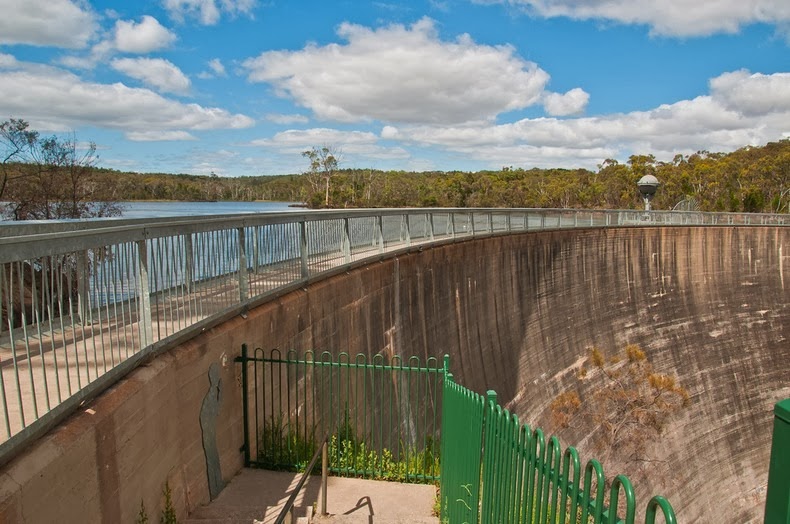But what draws visitors to Barossa Reservoir is the unique acoustic effect of its curved wall. Due it’s parabolic shape, words whispered at one side can be clearly heard at the other, more than 140 meters away, earning the dam the title "Whispering Wall".

The story goes that this feature was first discovered during the construction when a group of workers were overheard complaining about their boss who was on the other side of the dam and it cost them their jobs. This may well be folk lore but it adds some color to the dams history.
The Barossa Reservoir was formed by damming the Yettie Creek gorge in the northern Mount Lofty Ranges, a feat that took over 400 men. Its water comes through a two-kilometer tunnel, carved by horse power, from the South Para River and Reservoir, and is supplemented by the Warren Reservoir and the River Murray. In addition to Gawler and country, a filtration plant constructed in 1982 allows the Reservoir to supply the Munno Para and Elizabeth areas.
Aside from its acoustic attraction, the Whispering Wall offers great views of both the Barossa Reservoir and the surrounding, well-preserved natural bounty. The area abounds in thick scrub, tall red gums, and pines, and a flourishing bird and animal life. It is a popular destination for picnics and bird-watching.



Barossa Reservoir construction pictures.





Source
